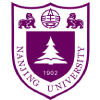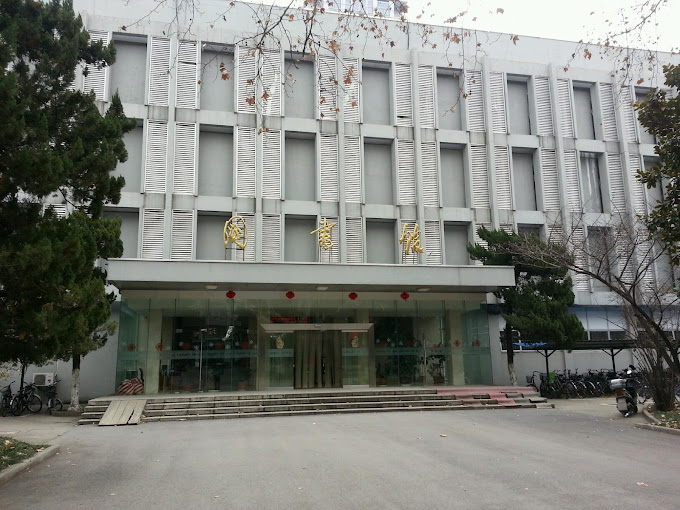22 Hankou Road, Gulou District, Nanjing, Jiangsu Province 210093, China
Career Counselling

Nanjing University is a highly ranked research university located in the city of Nanjing, China. With over 33,000 full time students, of whom about 10% are international and 43% are undergraduates, it is a vibrant institution of higher learning.
The university has three campuses: Gulou, Xianlin, and Pukou. The main Gulou campus is home to most of the academic departments and accommodation units, and is located in the center of Nanjing City. The suburban Xianlin campus was opened in 2009, and hosts most of the undergraduate classes. Pukou contains the ...
| Establishment year | 1902 |
| Total Students | 33,205+ |
| International Students | 3,350 |
| QS World University Rankings 2024 | =141 |
| Campus Size | 659 Acres |
| Total Number of Campuses | 3 |
| University Website | https://www.nju.edu.cn/ |
| No. of Schools and Divisions | 28 Schools and 73 Departments |
| Nobel Prize Winner Alumni | 0 |
| No. of Education Programs | 87 (undergraduate) |
| Student to Faculty ratio | 7:1 |
Nanjing University offers undergraduate and postgraduate courses through 28 schools, which contain a total of 73 departments.
The common entry requirements for all international students are the following:
Undergraduate international applicants must submit a high school completion certificate, or a provisional diploma, along with detailed notarized transcripts, if available. In the event that their age is less than 18, they will need to nominate a local guardian who lives in China.
Postgraduate international applicants must submit a bachelor’s or master’s degree certificate, depending on whether they are applying for a master’s or PhD program, respectively.
International applicants to Nanjing University must submit their applications online via the application portal. The following steps are involved in the admissions process:
International students at Nanjing University pay annual tuition fees that vary according to the School and Department:
Accommodation fees for all students vary according to whether a single room (12,000 RMB per year) or a double room (6,000 RMB per year) is chosen.
There are also other fees that all international students must pay:

Nanjing University has three campuses: Xianlin, Gulou, and Pukou, with a total area of 659 acres. The Xianlin Campus is in the northeastern part of Nanjing city, and is home to most of the undergraduate students of the university. It is located in a mountainous area, and is connected to the main Gulou campus by subway. Gulou, in the city center, is divided into the North Garden and South Garden areas. The first of these hosts teaching and research facilities, whereas the South Garden contains accommodation and housing. The Pukou campus hosts Jinling College, which is a leading center of innovation at the university.
The Gulou and Xianlin campuses have 4 and 11 canteens each, where most students eat their daily meals. All three campuses have several restaurants in and around their premises, and Gulou and Xianlin have two large, associated hospitals to assist with medical treatment and emergencies. There are also three supermarkets across the campuses, where students can find all the daily items that they might need for personal or academic purposes. The Campus Card, which is used both as a student ID card and a debit card, allows campus residents access to all student facilities.
Student societies at Nanjing University are of six types: public welfare, academic science and technology, art performance, culture and communication, sports and skills competitions, and life and recreation. Art and music are part of student life, with the Symphony and Chinese Music Orchestras providing the most skilled student musicians a chance to display their skills, and the Student Choir serving as a centerpiece of all the annual student festivals.

The main Gulou campus has several indoor and outdoor sports facilities, including a large stadium, and basketball, badminton, and volleyball courts. Most of these amenities are free, though some courts require advance reservations and fee payments to use them. The Lv Zhihe Natatorium contains swimming pools and exercise areas. Students need to complete a physical examination to acquire a swimming permit, and each session at the pool is priced at 10 RMB. The Xianlin campus has facilities that are very similar to those on the Gulou campus, with the Fang Zhaozhou Gymnasium acting as the central hub of all sports facilities at this location.
The Institute for International Students helps overseas candidates acclimatize to life at a Chinese university and organizes events, sightseeing walks, tours, sports events, and recreational activities. Every department has a student association, which helps international and domestic students work together in areas of common interest.
There are four main scholarships for international students at Nanjing University:
